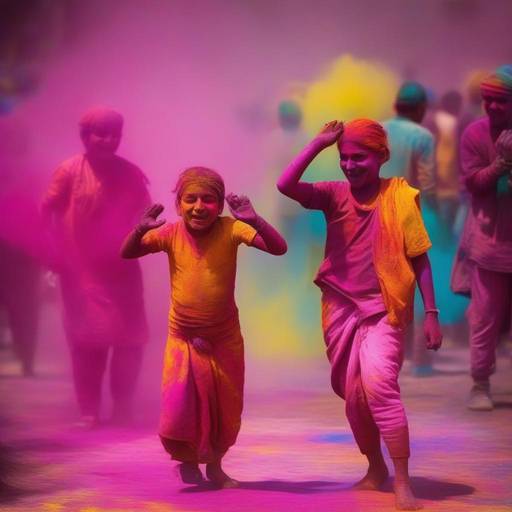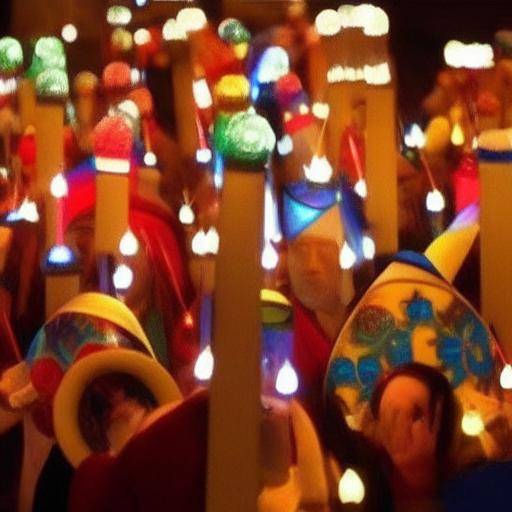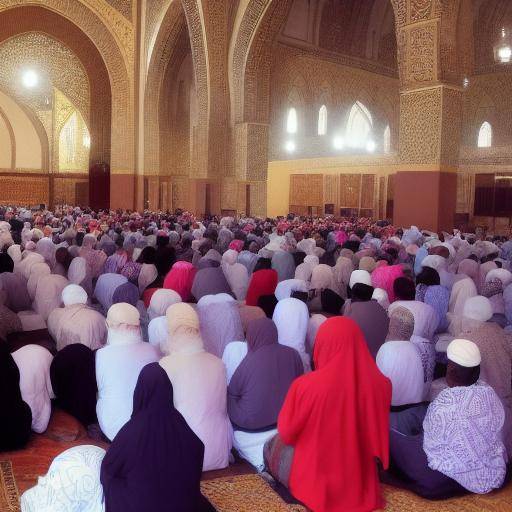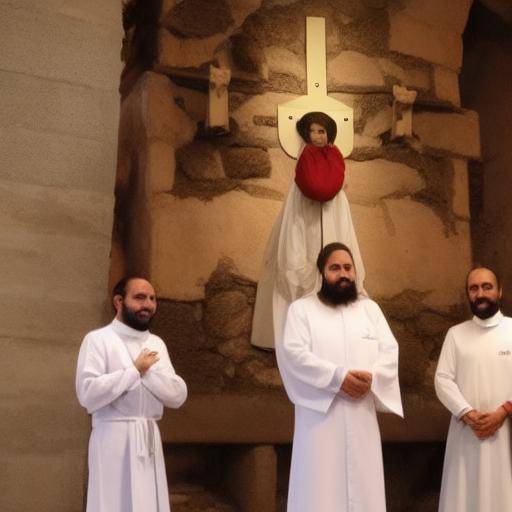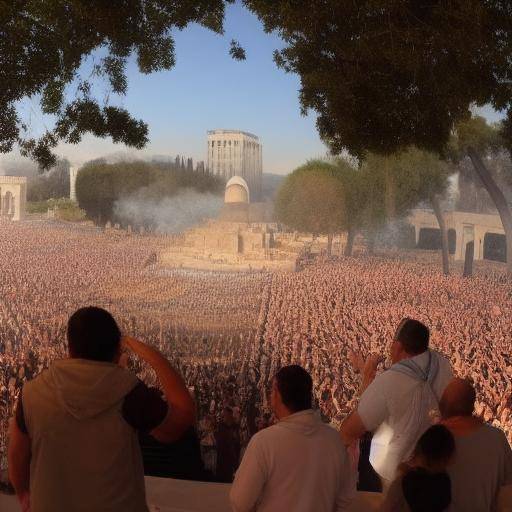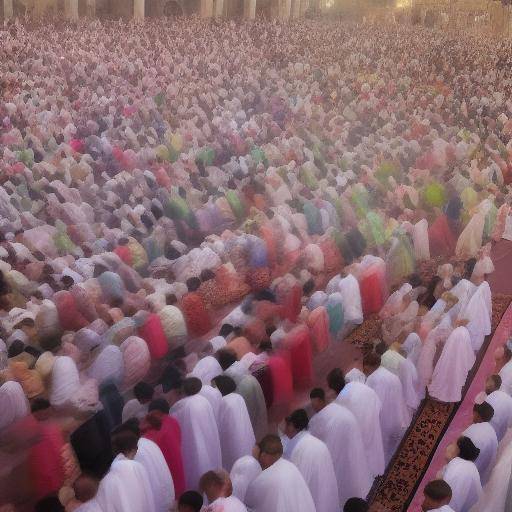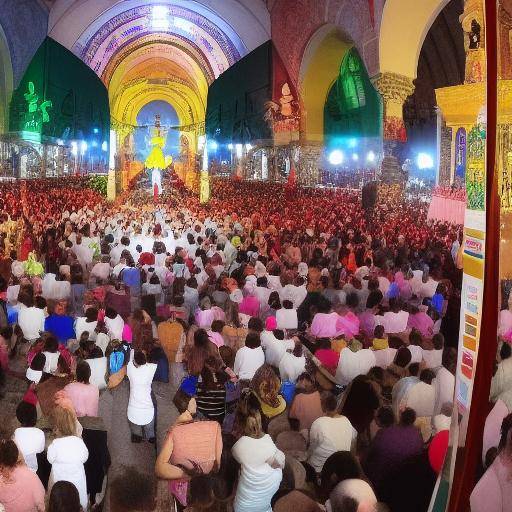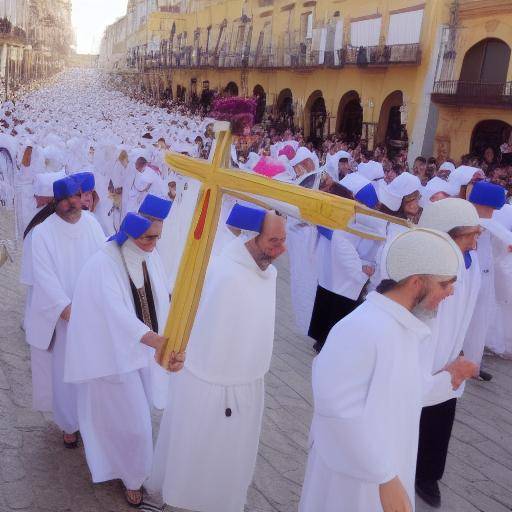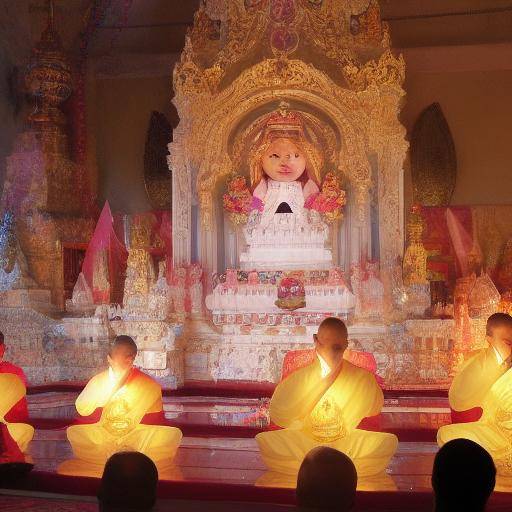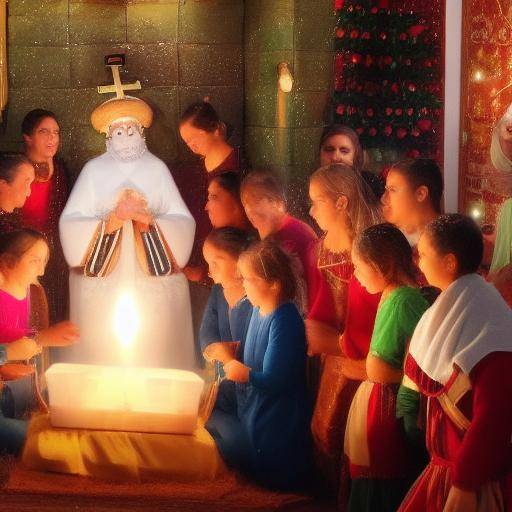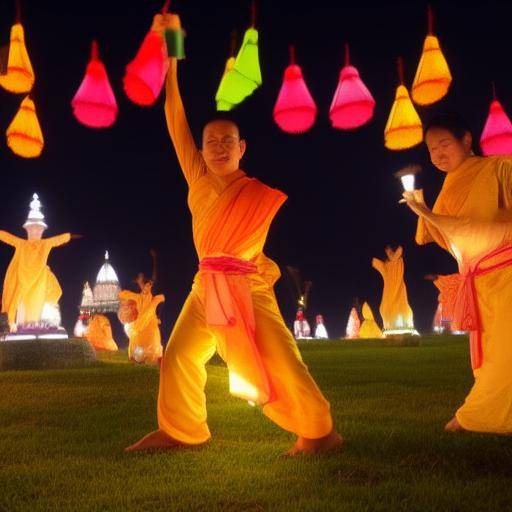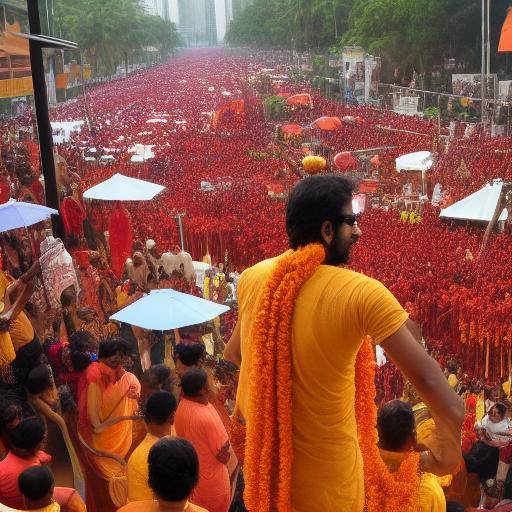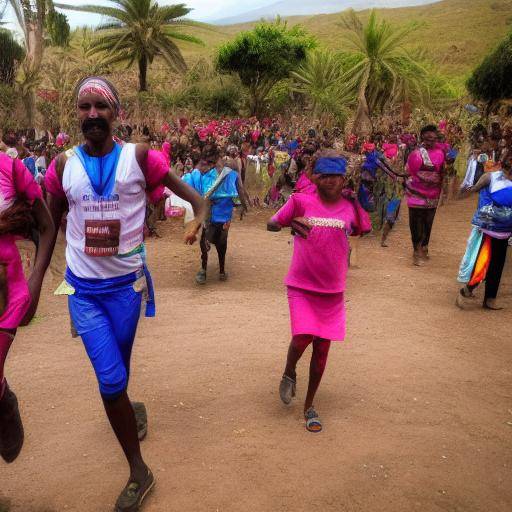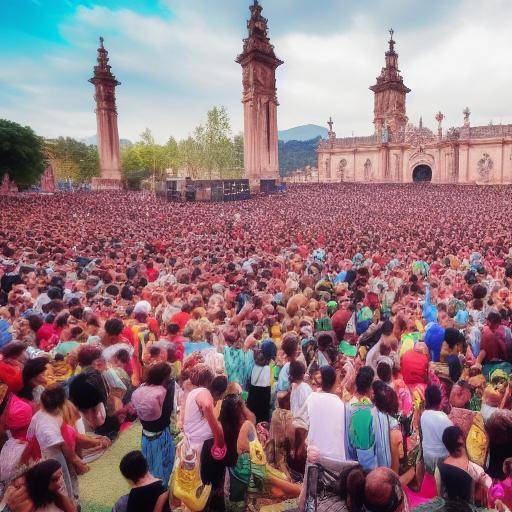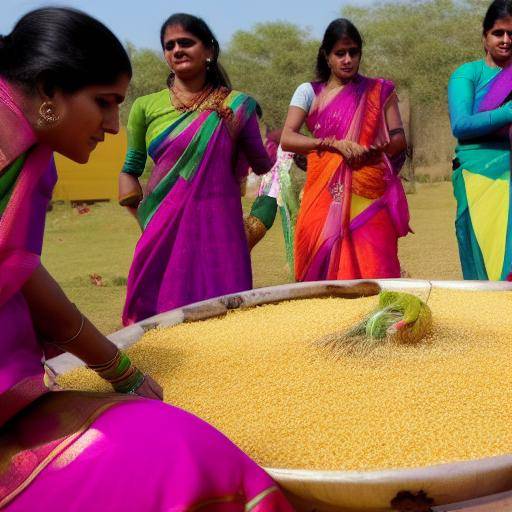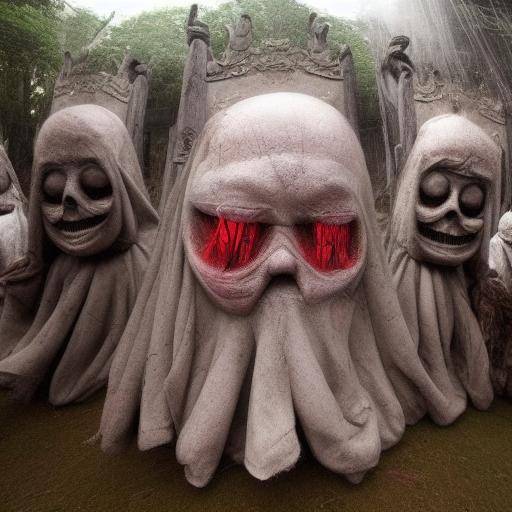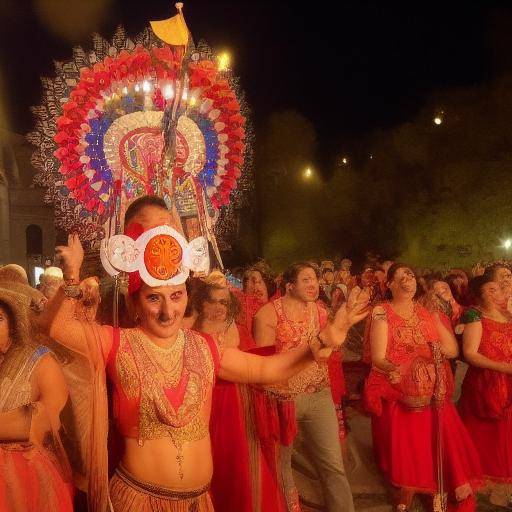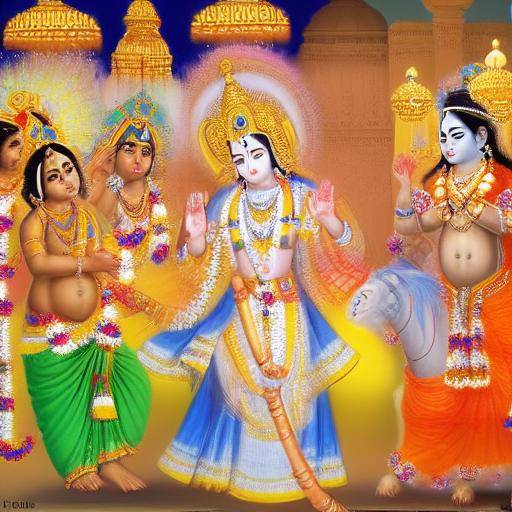
The festival of Janmashtami is a significant celebration in the Hindu religion that commemorates the birth of Krishna, a deity venerated in Hinduism. This religious festival is observed with great devotion and enthusiasm by millions of followers around the world. In this article, we will explore in depth the history, meaning, traditions, and practices associated with Janmashtami, as well as their relationship with Hinduism and other religious festivals.
Introduction
The birth of Krishna is an occasion of great importance for the Hindu devotees, and the festival of Janmashtami is a colorful expression of love and devotion for Lord Krishna. In this article, we will explore the fascinating history and traditions rooted in this festival, as well as the relationship between Janmashtami, Hinduism and other religious festivals. We will also provide a detailed look at the cultural and spiritual importance of Janmashtami for millions of followers around the world.
History and Background of Janmashtami
Janmashtami, also known as Gokulashtami, commemorates the divine birth of Krishna, the eighth incarnation of Vishnu, the protective deity in Hinduism. According to the Hindu calendar, Janmashtami is held in the Ashtami (eight day) of the month of Bhadrapada, which usually falls in August or September. The festival is characterized by devotional rituals, chants, dances, theatrical performances and the decoration of altars with flowers and fruits in temples and homes.
Janmashtami has historical roots in the accounts of the Bhagavad Gita and the Bhagavad Purana, where the miraculous birth of Krishna is narrated in the prison of Mathura in the dark night of Ashtami. The celebration of his birth reflects the divine nature of Krishna, who became a central figure in the spirituality and mythology of Hinduism.
This festival also commemorates Krishna's heroic feats, including his victory over demons and his teaching of wisdom through the Bhagavad Gita. The rich tradition of Janmashtami has evolved over the centuries, incorporating different rituals and customs that reflect the cultural diversity of India and the Hindu diaspora around the world.
Analysis in Depth of Janmashtami and its Meaning in Hinduism
The festival of Janmashtami has a profound spiritual and cultural importance for the followers of Hinduism. Starting from the purification of the body and the mind, devotees observe precise rituals that include fasting, reciting mantras, chanting bhajans and kirtans (devotional chants), and performing puja (ritual worship). These practices seek to connect devotees with Krishna's divine energy and strengthen their love and devotion.
The tradition of breaking the 'Dahi Handi', a clay pot full of butter placed at high altitude, symbolizes the challenges faced by Krishna during his childhood. This activity fosters camaraderie and cooperation among the participants and celebrates Krishna's cunning and courage.
Janmashtami reflects the importance of love, wisdom and devotion in Hinduism, and its celebration fosters community unity, harmony and inner peace. In addition, the festival promotes universal values such as compassion, resistance, and respect for nature and all forms of life.
Janmashtami Comprehensive Review in Relation to Other Religious Festivals and Hinduism
The celebration of Janmashtami shares significant similarities with other religious festivals, both in India and in other cultures. Lovely devotion and holiday rituals connect Janmashtami with festivals such as Navaratri and Diwali, which also celebrate the victory of good over evil and the worship of various deities.
In the broader context of Hinduism, Janmashtami plays a vital role in emphasizing the importance of personal worship (bhakti) as a fundamental spiritual path. This celebration promotes the idea that through sincere love and devotion to a deity, such as Krishna, one can attain spiritual enlightenment and union with the divine.
The rich tradition of Janmashtami also brings a unique perspective to modern life, as the festival highlights the importance of tradition, faith and connection with the transcendent in a constantly changing world. This approach to spirituality and community can be a source of inspiration and strength in the midst of contemporary challenges.
Practical Tips and Recommendations for the Celebration of Janmashtami
For those interested in participating in the Janmashtami celebration, it is important to keep some practical considerations in mind. Here are some useful tips that can enrich the festival experience:
- Participate in local holidays: Many Hindu communities organize public events, such as theatrical performances, bhajan singing, and the breaking of the 'Dahi Handi'. Participating in these celebrations can provide an immersive and enriching experience.
- Performing personal rituals: According to Hindu tradition, devotees can perform personal rituals in their homes, including the decoration of altars with flower
Conclusion
The festival of Janmashtami brings a treasure of spiritual, cultural and social significance to the Hindu community and to all those who seek to understand and appreciate its values. By reflecting on Krishna's life and teachings, devotees find inspiration to cultivate love, compassion and wisdom in their own lives. With their colorful festivities, devotional rituals and the expression of deep devotion, Janmashtami continues to illuminate the hearts and minds of countless followers throughout the world.
Hinduism is one of the oldest and most complex religions in the world, and its spiritual and cultural wealth deserves to be fully explored and appreciated. As we embark on the journey of knowledge and understanding of Hinduism, we discover a universe of beliefs, practices and traditions rooted in centuries of history and evolution. Religious festivals, like Janmashtami, invite us to immerse ourselves in the rich religious and cultural diversity that enriches our world.
While this article provides an immersive view of Janmashtami, Hinduism and religious festivals, it is important to note that these traditions encompass a variety of practices, interpretations and expressions that deserve to be explored with open mind and respect. In understanding and celebrating religious and cultural diversity, we contribute to a world of harmony and mutual respect.
Frequently asked questions
What is the meaning of the word "Janmashtami"?
Janmashtami derives from two Sanskrit words: "Janma" which means birth, and "Ashtami" which means the eighth day of the lunar month. Therefore, Janmashtami commemorates the birth of Krishna on the eighth day of the lunar month.
How is Janmashtami celebrated in different parts of India?
The celebrations of Janmashtami vary in different regions of India, but generally include the decoration of altars with flowers and fruits, the realization of bid (ritual worship), the recitation of sacred scriptures, the chanting of bhajans and kirtans, theatrical performances and the observance of fasting and meditation rituals. The breaking of the 'Dahi Handi' is a popular tradition in western India.
What role does Krishna play in Hinduism?
Krishna is considered an important deity in Hinduism, revered as the incarnation of Vishnu, the preserver and sustainer of the universe. It is attributed to the transmission of the Bhagavad Gita, a sacred text containing the spiritual teachings of Krishna, offering guidance on duty and morality in life.
What is the spiritual importance of fasting in Janmashtami?
Fasting in Janmashtami is performed as a sample of devotion and purification of the body and mind. It is believed that abstaining from solid foods and drinking water during the day strengthens the spiritual connection with Krishna, allowing devotees to concentrate on worship and contemplation.
What is Janmashtami's main message for devotees?
The celebration of Janmashtami conveys the message of love, devotion, wisdom and courage. The devotees are taught to maintain a loving relationship with God through sincere devotion, to follow the path of righteousness and virtue, and to confront the challenges with determination and courage.
What is the relevance of the breaking of the 'Dahi Handi' in Janmashtami?
The break-up of the 'Dahi Handi' symbolizes the challenges faced by Krishna during his childhood and his cunning to overcome them. This activity promotes camaraderie values, cooperation and celebration of courage, as well as problem solving and overcoming obstacles in life.
What does the decoration of altars with flowers and fruits have in Janmashtami?
The decoration of altars with flowers and fruits symbolizes the sense of harmony, beauty and gratitude to the divinity. The devotees show their love and devotion to Krishna by adorning the altars with natural elements, creating a sacred space of reverence and celebration.
The festival of Janmashtami is an intrinsic celebration in Hinduism that transcends cultural and geographical barriers, connecting devotees with the immense spiritual wisdom and teachings of love and devotion of Krishna. As the world continues to marvel at the richness and diversity of religious traditions, Janmashtami shines as an incomparable gem that illuminates the spiritual path of millions around the world.



